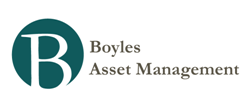Hussman Weekly Market Comment: Why Quantitative Easing is Likely to Trigger a Collapse of the U.S. Dollar
A week ago, the Federal Reserve initiated a new program of "quantitative easing" (QE), with the Fed purchasing U.S. Treasury securities and paying for those securities by creating billions of dollars in new monetary base. Treasury bond prices surged on the action. With the U.S. economy predictably weakening, this second round of quantitative easing appears likely to continue. Unfortunately, the unintended side effect of this policy shift is likely to be an abrupt collapse in the foreign exchange value of the U.S. dollar.
…..
So it is important to avoid misinterpretation - the policy of quantitative easing is likely to force a large adjustment on the U.S. dollar because the Federal Reserve is choosing to lay a heavier hand on the Treasury bond market than would result from economic conditions alone. The resulting shift in interest rates and long-term inflation prospects combine to dramatically reduce the attractiveness of the U.S. dollar. A significant and relatively abrupt devaluation is then required, in an amount sufficient to set up expectations of a U.S. dollar appreciation over time.
One way to think about the price jump required by exchange rate overshooting is to think about a long-term bond. If a 10-year zero-coupon bond with a $100 face is priced to deliver 0% annually, it will have a price of $100. If investors suddenly demand the bond to be priced to deliver 2% annually, the bond must experience an immediate drop in price to $82. Once that price drop occurs, the selling pressure on the bond will abate, since it will now be expected to appreciate at a 2% annual rate.
My impression is that Ben Bernanke has little sense of the damage he is about to provoke. A central banker who talks about throwing money from helicopters is not only arrogant but foolish. Nearly a century ago, the great economist Ludwig von Mises observed that massive central bank easing is invariably a form of cowardice that attempts to avoid the need to restructure debt or correct fiscal deficits, avoiding wiser but more difficult choices by instead destroying the value of the currency.
Von Mises wrote, "A government always finds itself obliged to resort to inflationary measures when it cannot negotiate loans and dare not levy taxes, because it has reason to fear that it will forfeit approval of the policy it is following if it reveals too soon the financial and general economic consequences of that policy. Thus inflation becomes the most important psychological resource of any economic policy whose consequences have to be concealed; and so in this sense it can be called an instrument of unpopular, that is, of antidemocratic policy, since by misleading public opinion it makes possible the continued existence of a system of government that would have no hope of the consent of the people if the circumstances were clearly laid before them. That is the political function of inflation. When governments do not think it necessary to accommodate their expenditure and arrogate to themselves the right of making up the deficit by issuing notes, their ideology is merely a disguised absolutism."
As a side note, von Mises also cautioned against the misconception that destroying the value of a currency would have a sustainable benefit for the economy, writing "If the depreciation is desired in order to 'stimulate production' and to make exportation easier and importation more difficult in relation to other countries, then it must be borne in mind that the 'beneficial effects' on trade of the depreciation of money only last so long as the depreciation has not affected all commodities and services. Once the adjustment is completed, then these 'beneficial effects' disappear. If it is desired to retain them permanently, continual resort must be had to fresh diminutions of the purchasing power of money."
- Hussman Weekly Market Comment: The Outlook Will Shift As Conditions Shift
Our investment outlook will shift as market conditions shift, and we will lean toward a more constructive stance when conditions support it. There are straightforward ways to do that while still remaining careful about larger cyclical risks. Present conditions...
- Hussman Weekly Market Comment: Out On A Limb - An Investor's Guide To X-treme Monetary And Fiscal Conditions
Government intervention in the U.S. economy is approaching the point where probable long-term costs exceed short-term benefits – straining to maintain the pace of extraordinary fiscal and monetary measures that have repeatedly nudged the U.S. economy...
- Hussman Funds Semi-annual Report
The U.S. economy appears suspended at the boundary between tepid growth and recession, requiring a trillion-dollar federal deficit and unprecedented monetary easing simply to maintain that position. The Federal Reserve continues a well-known and fully-announced...
- Gundlach: Treasuries Will Rally When Qe2 Ends - By Robert Huebscher
The bonds that PIMCO’s Bill Gross sold to take a 3% short position in the Treasury market may have found a buyer in Doubleline’s Jeffrey Gundlach. In a conference call with investors last week, Gundlach said that Treasury prices would rise in the...
- Hussman Weekly Market Comment: The Recognition Window
Over the course of the market cycle, one of the primary areas of risk for stocks (and conversely, one of the best periods for Treasury bonds) is typically the "recognition window" where economic activity begins to deviate from the upward trend that is...

